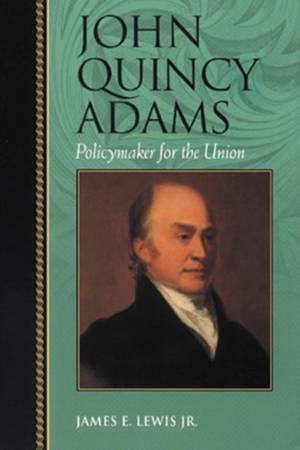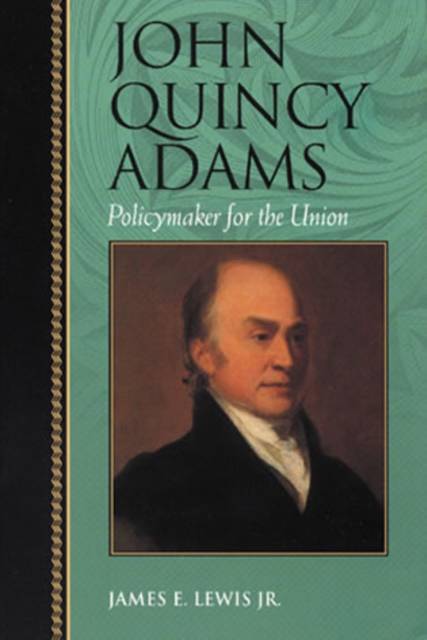
- Afhalen na 1 uur in een winkel met voorraad
- Gratis thuislevering in België vanaf € 30
- Ruim aanbod met 7 miljoen producten
- Afhalen na 1 uur in een winkel met voorraad
- Gratis thuislevering in België vanaf € 30
- Ruim aanbod met 7 miljoen producten
Zoeken
Omschrijving
This new book focuses on John Quincy Adams's extensive role in foreign policy, including his years as secretary of state and as president. Brief but thorough, John Quincy Adams: Policymaker for the Union analyzes Adams's foreign policy accomplishments during key moments in American history, including the Rush-Bagot Agreement, the Transcontinental Treaty, the recognition of the Spanish-American republics, and the Monroe Doctrine. At the same time, the book shows that Adams was far less successful than many historians suggest. John Quincy Adams: Policymaker for the Union focuses on Adams's ideals of the centrality of the union to American happiness, the necessity of federal action to protect the union, and the indivisibility of foreign and domestic concerns. This book's examination of these three points casts new light on the logic behind many of Adams's accomplishments and also exposes the sources of some of his failures. This is the first study to examine how Adams's views ultimately led to his failure as a policymaker. This book is ideal for courses in diplomatic history, American history, and American political history.
Specificaties
Betrokkenen
- Auteur(s):
- Uitgeverij:
Inhoud
- Aantal bladzijden:
- 164
- Taal:
- Engels
- Reeks:
Eigenschappen
- Productcode (EAN):
- 9780842026222
- Verschijningsdatum:
- 1/03/2001
- Uitvoering:
- Hardcover
- Formaat:
- Genaaid
- Afmetingen:
- 159 mm x 237 mm
- Gewicht:
- 480 g

Alleen bij Standaard Boekhandel
+ 268 punten op je klantenkaart van Standaard Boekhandel
Beoordelingen
We publiceren alleen reviews die voldoen aan de voorwaarden voor reviews. Bekijk onze voorwaarden voor reviews.











